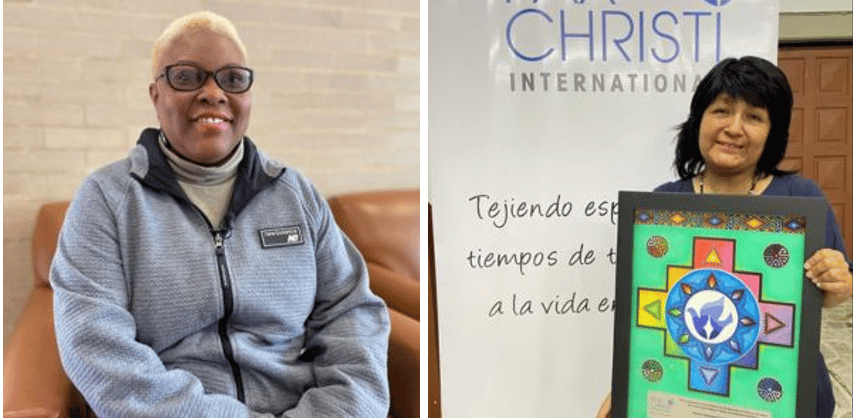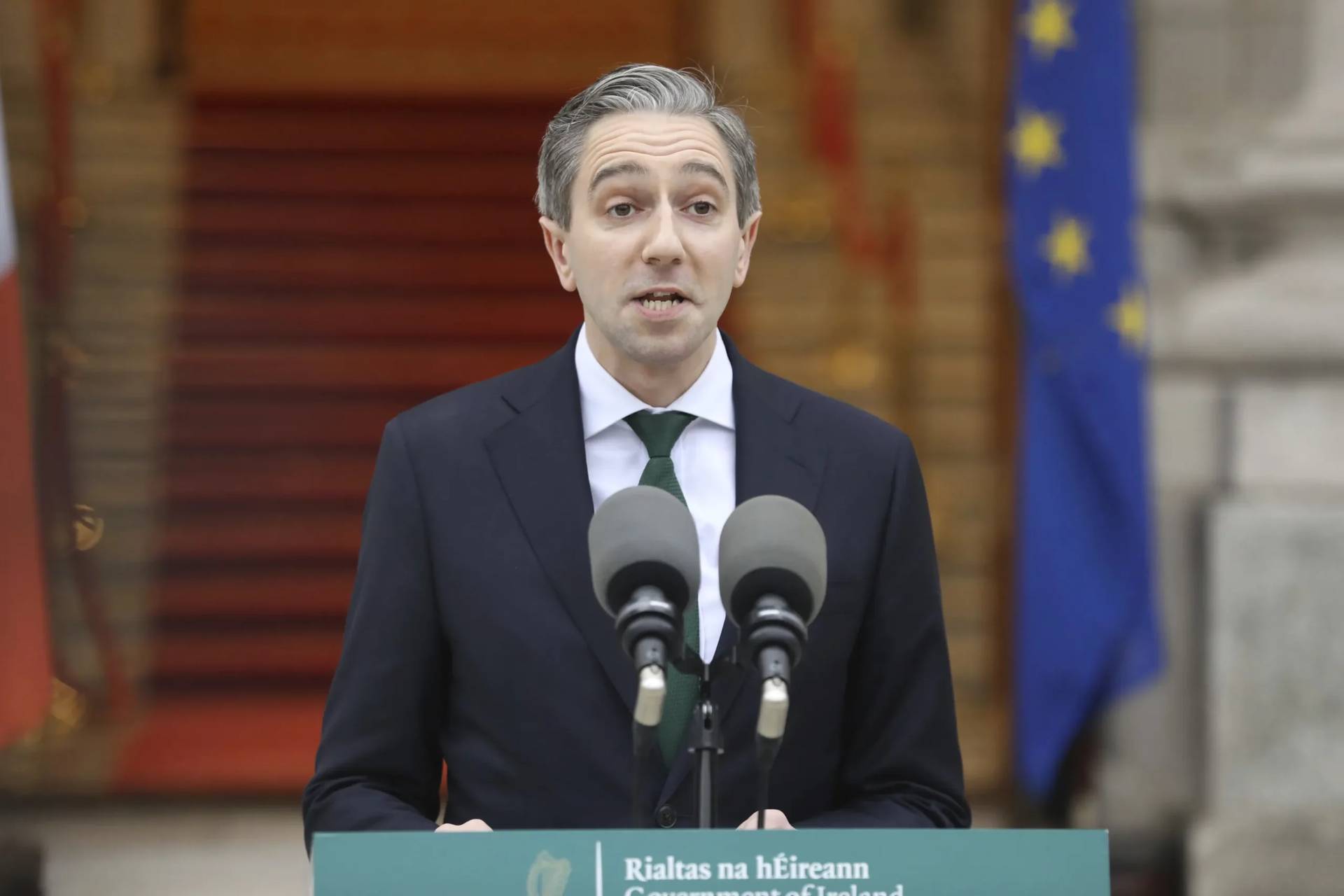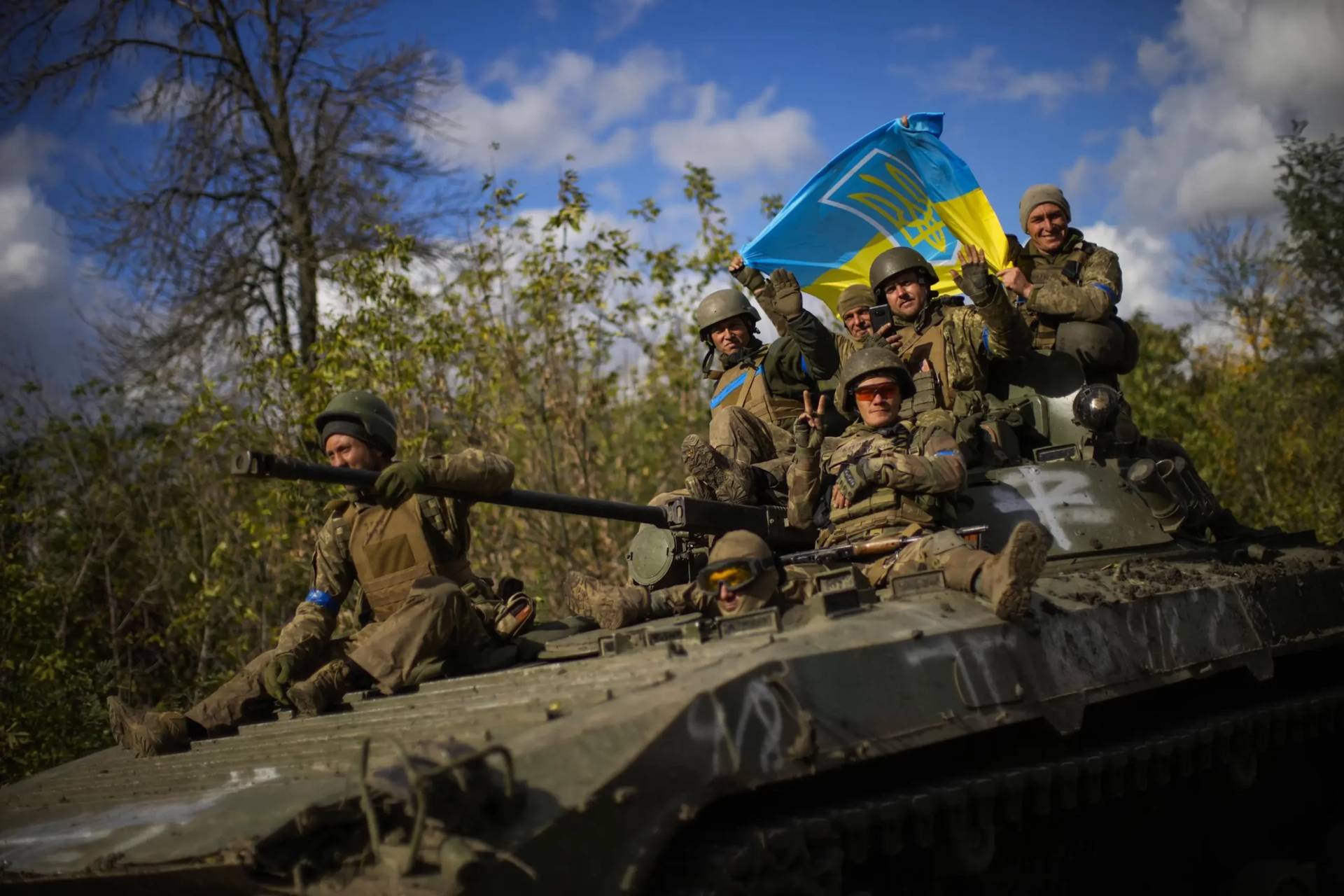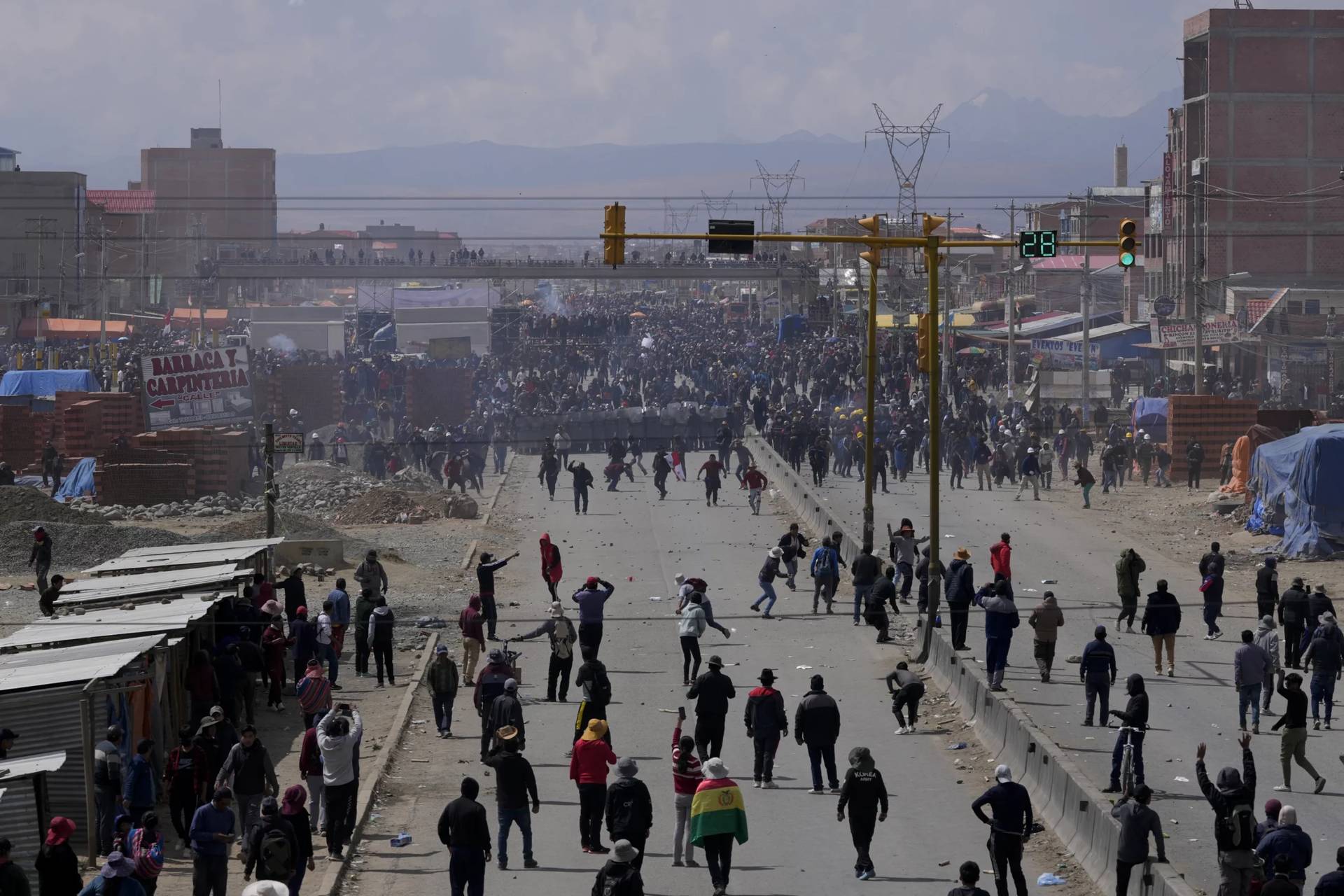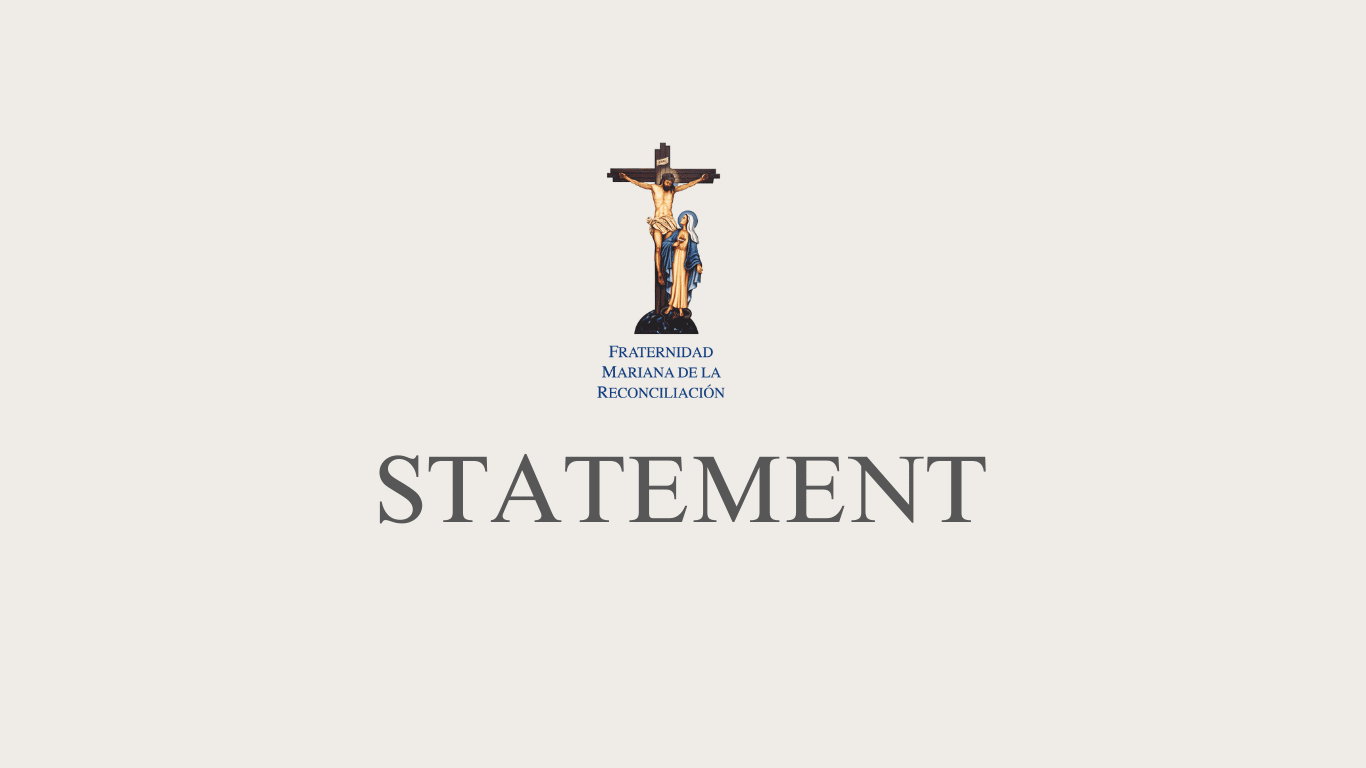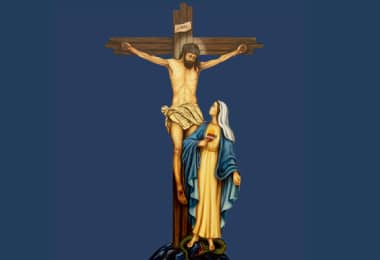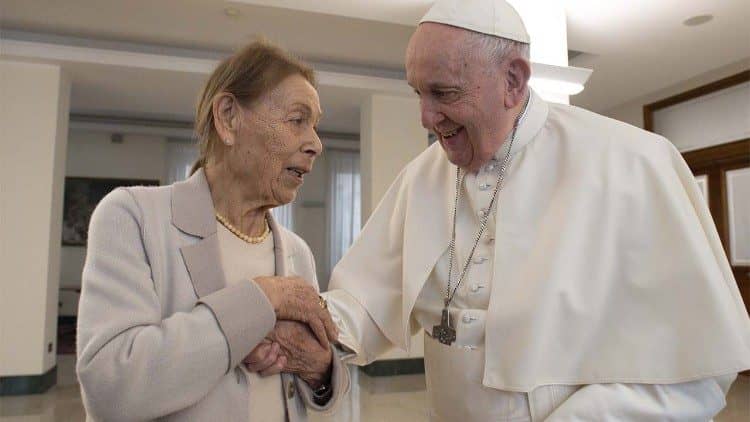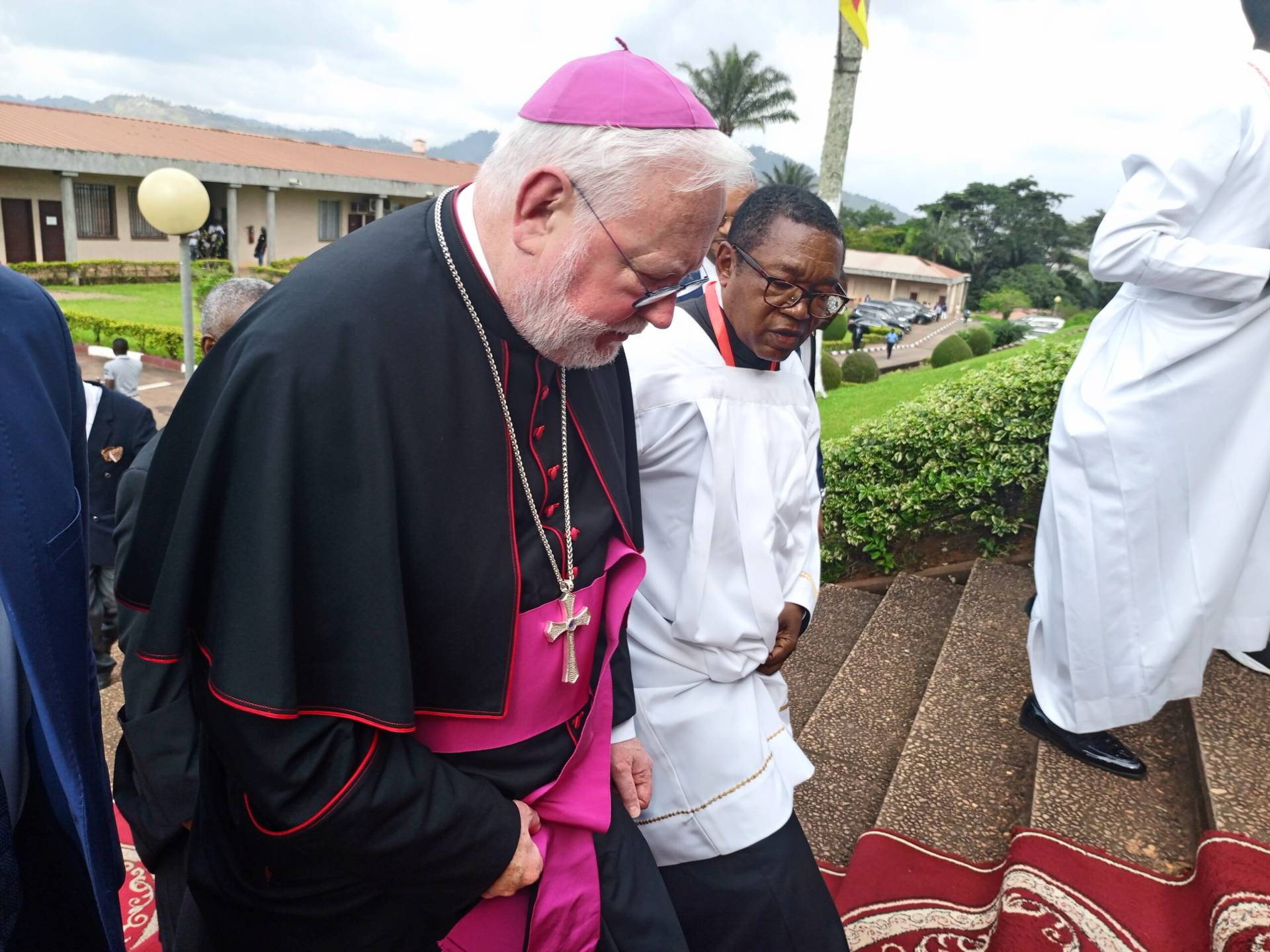SÃO PAULO, Brazil – Two Latin American and Caribbean women, one a nun and the other a layperson, have won the annual “Peace Award” from Pax Christi International for their efforts for the lives and the dignity of people facing catastrophic living conditions.
Haitian-born lay Catholic Jocelyne Colas and Bolivian-born Sister Gladis Montesinos were honored during a ceremony in Palmira, Colombia, Oct. 28, as a kind of side event of the United Nations Biodiversity Conference (known as “COP16”), hosted by Colombia and attended by several Catholic environmentalists.
Colas received her honor on behalf of Haiti’s Episcopal Justice and Peace Commission, which operates in all neighborhoods of Port-au-Prince and other areas of the country to promote vulnerable Haitians’ human rights.
Montesinos, a member of the Carmelite Missionaries congregation, has been living along the Indigenous Tsimane people in Bolivia’s Beni department for years. The group hasn’t received the right to occupy their traditional lands from the Bolivian government, and has been struggling against invaders and environment destroyers.
Pax Christi International is a Catholic movement created after World War II and formed by over 120 organizations that promote human rights, justice, and peace.
According to Martha Romero, Pax Christi International secretary-general, “the essence of the award is to honor the Gospel and show the struggles of Church people to respond to its anti-violence message.”
“It’s not about being passive, but about being courageous enough to confront injustice and the systems of violence,” she told Crux.
Romero emphasized that Montesinos has been working for the protection of an Indigenous group that hasn’t even been acknowledged as such by Bolivia’s state.
In the case of Haiti, a country that has faced widespread social turmoil with the growing dominance of armed criminal groups over vast areas of the capital city and other regions, the Justice and Peace Commission, headed by Colas, has been playing a central role in accompanying 300 vulnerable communities that have lost everything.
“Those two women have been facing situations of violence with a lot of empathy and bravery,” Romero said.
The recognition also extends to the large groups of people that are behind the two recipients, she said.
In the case of Colas, that was especially relevant, given that she couldn’t attend the event and the award was received by her Justice and Peace Commission colleague Father Jan Hanssens.
“I went to Colombia in September for a meeting with the Episcopal Conference of Latin America (known as CELAM). When I came back, I required a new visa, but received a negative response. I don’t know why that happened,” Colas told Crux.
Tragically, that has been the fate of numerous Haitians who have been trying to flee the country since violence became virtually unbearable. In the neighboring Dominican Republic, for instance, hatred of Haitians has been rising, and the government has pledged to extradite up to 10,000 undocumented Haitian nationals every week.
Colas has been working to transform the internal reality of her nation since the 1990s, when she became a member of the Justice and Peace Commission at the Saint Pierre parish, in the district of Pétion Ville, and then joined the national group.
“Working for and with the most vulnerable in society is part of the mission of the Justice and Peace Commission. Haiti now faces a multifaceted crisis that causes great suffering for many in the nation,” she said.
The Justice and Peace Commission offers psychological and legal assistance to illegally incarcerated people; denounces cases of human rights violations; promotes the peaceful resolution of conflicts; and generates and publicizes data on the living conditions of the population.
“For me, that award is a gesture of recognition. It incentivizes me to keep doing what I do and further calls me to work for the respect of Haitians’ dignity and human rights,” Colas said.
Montesinos, meanwhile, said the award she received is a way of “showing the Tsimane that they are not alone in their struggle.”
“I have been living and working with them in order to listen to them. My goal is not to take an evangelizing script and catechize them. They already live many evangelical values, including peace,” she told Crux.
Accompanying them for several years, Montesinos engaged in their fight for their lands. The Tsimane’s ancestral territories have been declared “free land” by the government decades ago and non-Indigenous people began to invade them.
“The government failed to recognize them as ancestral peoples. Agribusiness and mining projects continually put their lives and their lands at risk,” she said.
Montesinos is a member of the Pan-Amazon Ecclesial Network (known as “REPAM”) in Bolivia, which has had a continuous presence in the Tsimane territory. Along with civic organizations such as Fundación Tierra, REPAM, Caritas and other church movements have also been denouncing the violations of the Tsimane’s – and other groups’ – rights in the national and international spheres.
“I learned with family, especially with my mother, the value of faith and of giving oneself to a mission. My Carmelite sisters allowed me to share my life with the Tsimane. It’s a gift from God to live that experience – and to accompany those people in their battle for a better future,” she said.
Each year, the Pax Christi International peace award focuses on one distinct world region. In 2023, the winner was the Israeli Palestinian organization called Parent Circles – Families Forum (known as “PCFF”), a group that encompasses 700 families that have lost at least one member due the continuous violence in the region.
